It’s hard for me to focus on my writing with all this horror going on. I don’t watch TV and have cancelled my New York Times subscription quite a while ago, but I want to know what’s going on. I get an email from The Guardian every day with links to the latest news, and then I read Substacks –
and , who you probably read too, and some lesser known voices who I want to recommend: who sends a daily newsletter “Good News For Us, Bad News For Trump”, (uplifting among the onslaught of disgusting daily news), who analyzes what’s going on in an exceptionally succinct, intelligent manner (“No foreign adversary or extremist organization could inflict the horrific damage that has put the United States into a very weakened and fragile state. We are being destroyed at the intersection of extreme wealth and willful ignorance.”), or , a retired lawyer who combines his daily analysis of the political landscape with beautiful images from faraway galaxies which he takes with his own telescope. Puts everything in perspective. Oh, and , his niece who is one of the sharpest critics of the PINO.Let me know in the comments how you get your news and what you do to keep your sanity while staying informed.
Alright, on to the next instalment of my adventures in India etc., by popular demand! That’s a joke – only ONE of my readers has asked to read more about my travels, but I happily comply; it’s a nice distraction.
I entered India on December 1, 1970 at the Hussainiwala Border Station in Punjab; as I wrote in an earlier post, the day coincided with the end of Ramadan, the month of fasting and prayer which is observed by Muslims all over the world. Both the Pakistani and the Indian border officials were in a festive mood and greeted us with tea and cookies. I still have the old passport with tons of stamps and visas and dates, some of which don’t mean anything because they belong to a different calendar, but I was able to establish that it must have taken us just a little over a month to drive from Germany to India.
To remind you: there were no cell phones, no GPS, just good, old-fashioned maps. Which was fine as long as one used the main roads only. But once we were in India we tried to avoid the big cities and wanted to explore the countryside. And that’s where a map didn’t help much any more. The villages often didn’t have a name sign, and if they did, it was written in Hindi which we couldn’t read. So then we had to ask somebody how to get from here to there, when we got lost. Which was frustrating because we didn’t know the correct pronunciation of the next village or town, and more often than not the person who we asked had no idea what to do with the map.
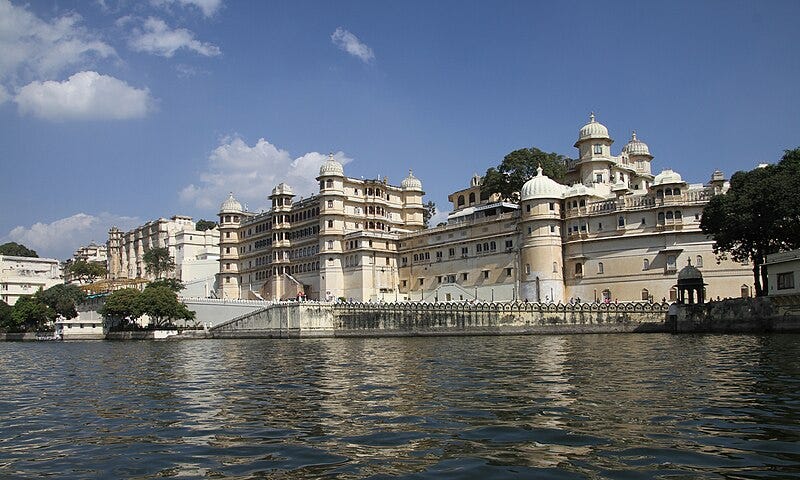
Despite the difficulties, we made it to Rajasthan – India’s largest state. The western part through which we traveled on the way to Bombay (Mumbai) was mostly dry, desert land, and yet, we passed many villages and little farms where people were trying hard to grow their crops. The irrigation system was often powered by donkeys: a big wagon wheel sat on top of the well, several donkeys were tied to the spokes, and they wandered around in circles all day, bringing up buckets of water that emptied into ditches. Getting anything to grow in this arid landscape was difficult!
Nevertheless, people were generally friendly. The occasional mishaps were just misunderstandings: for the night, we usually parked our VW-bus by a dirt trail, off the main road and with no sign of human habitation anywhere near. One early morning, loud shouting and banging woke us up. I opened the door, only to see the barrel of a rifle pointing at my face! After a few frightening moments it became clear that we had ended up on somebody’s property, and he had approached the vehicle, accompanied by family and neighbors, to identify and possibly fight off the aliens who must have fallen from the sky. Once he was satisfied that we were indeed just human beings he calmed down and invited us for tea.
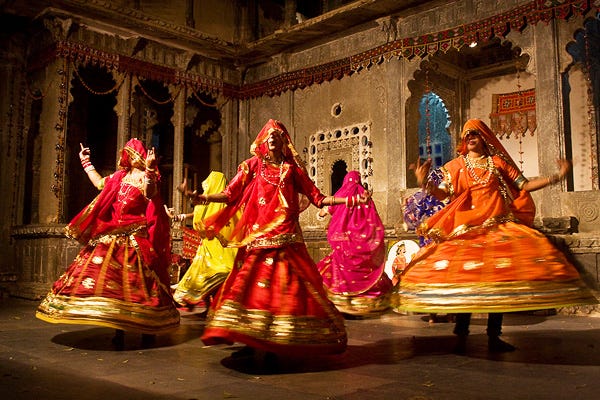
Another time we had parked right next to an irrigation ditch, and because the dirt road was too narrow to turn around, I had to drive back in reverse. And got too close to muddy waters with the right rear wheel. The more I revved the car to get out, the more the wheel spun deeper into the mud, until the van leaned dangerously to the right. We needed help! When we finally managed to find a farmer who owned two oxen and was willing to let them pull the bus out of the swamp, half of the nearby village cheerfully watched the spectacle. It was the entertainment event of the year! Everybody helped to tie some strong ropes around the van. Everybody helped to tie the other ends somehow around the two oxen. Finally they were ready to pull with all their might, I started the engine, gave gas while slowly releasing the clutch – but the bus only lurched more to the right. Maybe somebody else took over the driver’s seat, maybe the driver and the oxen tried a few more times, I don’t quite remember; but we finally had to give up.
A tractor! We’d need a tractor! There was indeed one farmer a bit further away who owned a tractor, we were told. Somehow they got in touch with him (remember, there were no cell phones; I bet some kid had to run for half an hour), and he was willing to help, but only after he finished his day’s work in the field. We didn’t have to wait all that long, and the tractor arrived. The ropes that were still in place around the van were attached to the tractor. The farmer took his seat, gave gas, drove forward – and at long last, the bus came free! All four wheels stood on firm ground. The jubilant applause could be heard from far away!
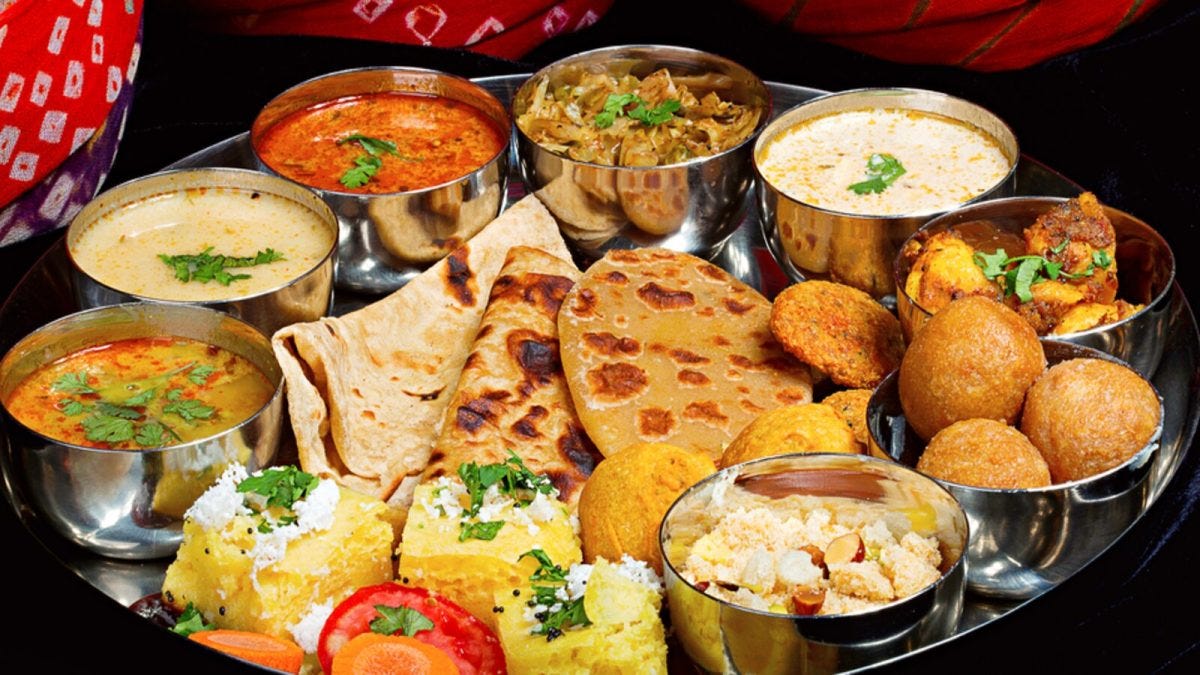
We tried to offer some money to compensate him for his time and effort, but the man wouldn’t hear of it. Same with the guy who owned the oxen; he felt sorry that he was unable to help and almost was offended when we held out some Rupees. The farmer with the tractor invited us for supper that evening, and we enjoyed a delicious meal with him and his extended family. The strangers from Germany were welcomed with open arms. The kindness and generosity of our hosts still touches me when I think back on this day. It’s strange, isn’t it – some people enter our lives, have quite an impact, and then we never see them again.
When we continued our journey to Bombay the next day, we soon noticed that something was wrong with the engine or whatever – it made an ominous noise. Obviously, the adventure from the day before and my excessive treatment of the clutch had damaged the old and somewhat fragile vehicle. Next stop: a garage which could handle a Volkswagen – not a common car brand in India. As it turned out and luckily for us, a VW-dealership was not at all necessary. We found a mechanic who clearly knew how cars worked, and it only took him a day or so until we were up and running again.
I remember how relieved I felt when we reached Bombay. It was a crazy, loud, overpopulated place, but friends had recommended the Rex Hotel, which meant real beds and a shower – for less than $10 a night. Our room was on the third floor and had a little balcony, just the right distance from the entertaining hustle and bustle in the street below. One could sit and watch all day; there were snake charmers, sword swallowers, dancers in gaudy costumes – a steady stream of captivating events. And a welcome pause after the long, stressful drive from Germany.
Following a couple of restful weeks in Bombay we took a train north, first to Dharamsala and then to Kashmir. What happened to the car, you ask? Well, I’ll tell you in Part III.




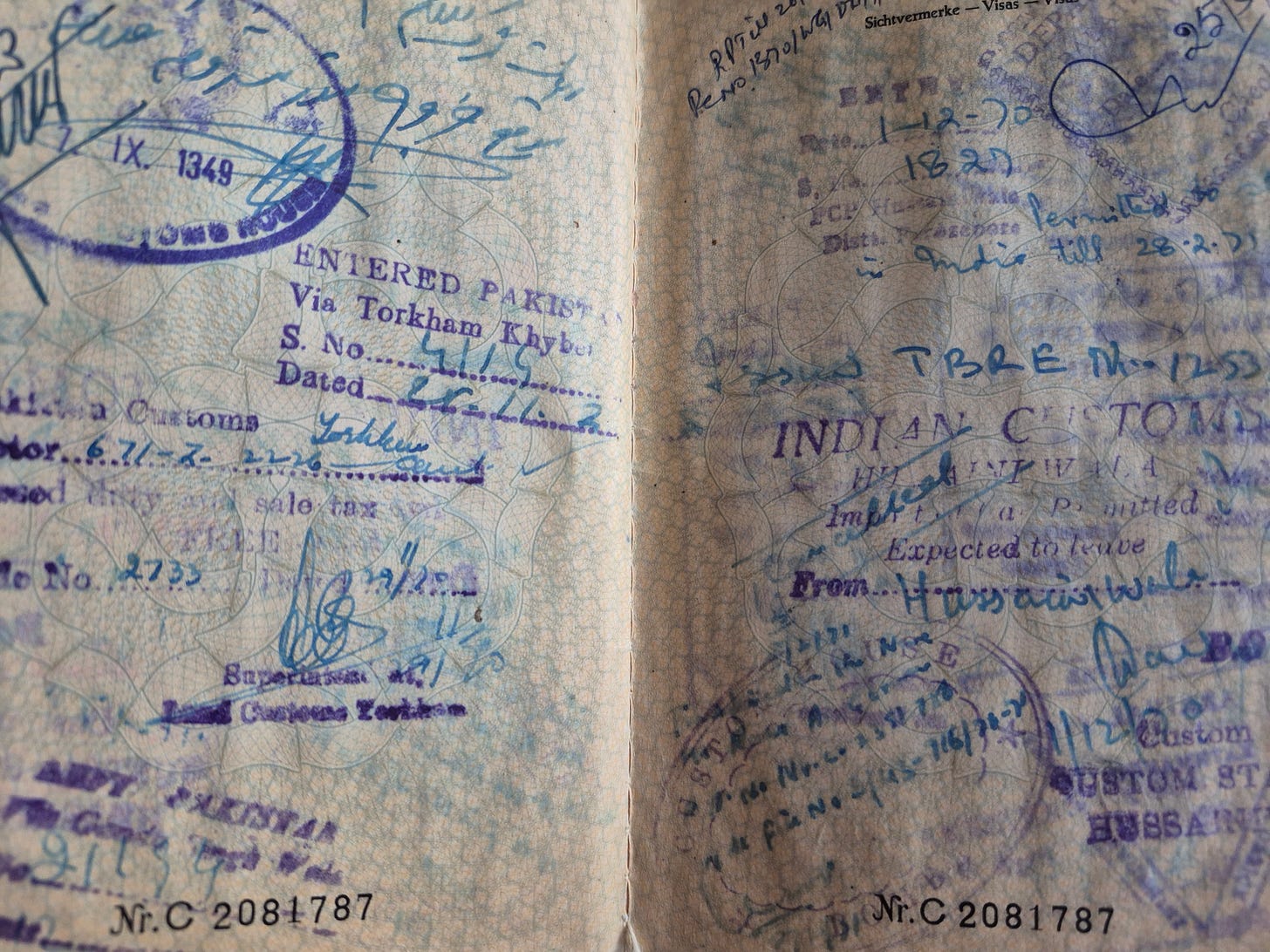
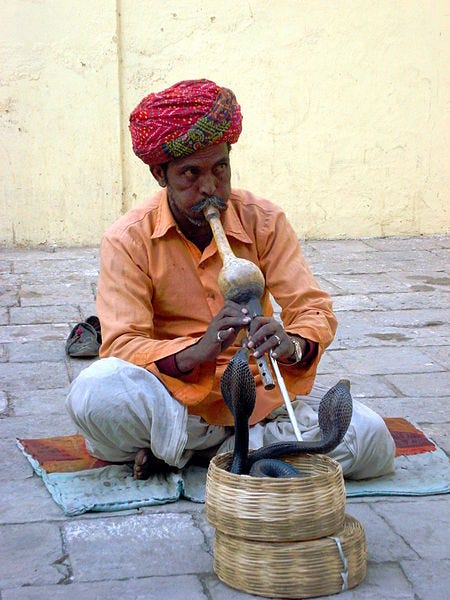
Thank you so much for sharing (and allowing us to live vicariously through your travels Jessica). It is in music, culture, art, and nature where we can reinforce the connectedness we all share (especially important when the rise of right-wing populism draws strength from nationalism, isolationism, and the "othering" of people around the world.
Well, that was a thrill and a half! I got a real laugh at the photo of the snake charmer who does not even have his eyes on the two cobras in front of him! My cousin Steve was just visiting us here in Mexico and he told us tales of his 3 trips to India totaling almost two years of time. He said at one point he had diarrhea for six months! Truly an extraordinary continent. Thanks Jessica.